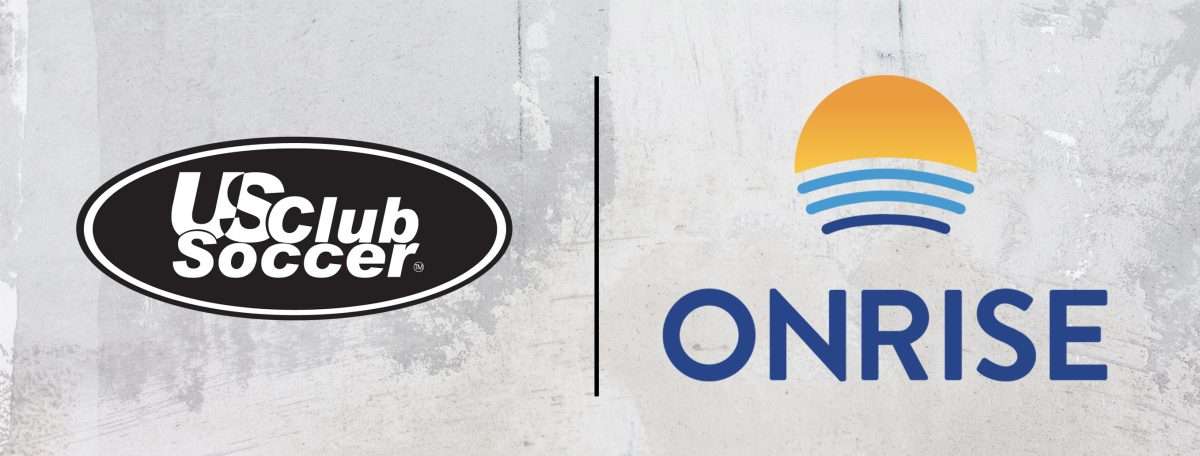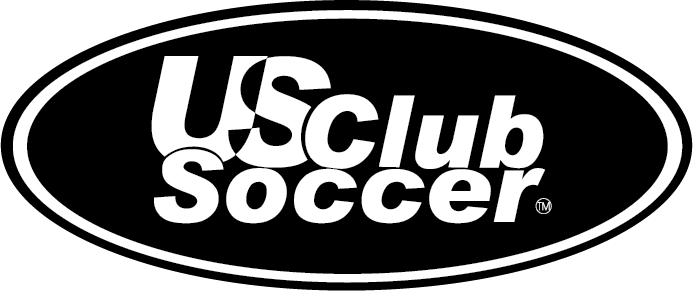Mental health strategies for coaches (via Onrise)
Editor’s Note (Feb. 13, 2024): This article was submitted by Onrise, which US Club Soccer has partnered with for ongoing educational resources related to mental health. The author, Tasha Saunders, is the VP of Player Care at Onrise. Tasha has her Player Care Certification and has completed training in Mental Health First Aid training for Adults and Youth. She grew up playing competitive soccer and continued her career at Sewanee as a four-year starter.
Onrise went to Anaheim for the 2024 United Soccer Coaches Convention to present on behalf of US Club Soccer on “Mental Health and Coaching: Strategies for On and Off the Field.” During the discussion-based session, coaches shared top stressors and strategies to combat these stress points. In the audience, there were youth coaches, high school coaches, current players, college coaches, professional coaches, spouses of coaches, and a few coaches who brought their children.
A common theme that was established right away was that coaches wear many hats.
The night before the presentation, there was a woman in the elevator who was wearing a Disneyland sweatshirt. I said something to her along the lines of, “Bless you for giving your children an amazing experience that they will never forget.” In an hoarse voice, gifted to her from a day filled with screaming, laughter and joy, she responded, “It was a great day, and now I am attending the coaches’ conference all day tomorrow.” Coaches wear many hats, and some wear capes too!
By wearing many hats, many points of stress were brought up by the coaches in the crowd: financial stress, pressure to get results, pressure to have a winning season, lack of sleep, work-life balance, time management, being a part-time coach, and a lack of emphasis on the qualitative support coaches give were some of the stressors shared.
When thinking about the stability and mental health of the team, coaches are a crucial piece, but so are the management staff. From attending many of the sessions, it was clear that seeing the “whole of the coach” is being prioritized more and more. Lucy Rushton, General Manager of Bay FC, shared in the NWSL presentation that during the coach hiring process, “understanding the coach as a human became really important to me.” Additionally, she added that “50 percent of coaching is how you manage people on a day-to-day basis.” Later in the presentation, Division I women’s national champion head coach Brian Pensky shared in reference to Rushton’s quote that he believes “way more than half of coaching is managing people on a day-to-day basis.”
So, the biggest question becomes how do you stay mentally strong and resilient as a coach without it being a façade? Or worse, masking the stress and presenting as “okay” and consequently masking the worst?
Dr. Kimberly Quigley, CEO of Onrise and board-certified Psychiatrist with more than 20 years of experience explains the science behind stress: “stress causes an imbalance in many neurotransmitters. The three main ones are norepinephrine, dopamine and serotonin.” Dr. Quigley explains that more norepinephrine allows a stressed person to shift focus from processing information to a more general view.” Essentially, when we have low levels of norepinephrine, we are incredibly focused on what is right in front of us and have higher levels of reactivity. Instead of viewing singular events in the grand scheme of things, we cannot move past “that one play” or “one player” or “one mistake.”
The next is dopamine. “Dopamine helps a stressed person assess risk and make decisions,” states Dr. Quigley. “When there are low levels of dopamine, you start making riskier, sub-optimal decisions.”
In the trifecta of neurotransmitters, the last is serotonin. “Serotonin is critical in post-stress anxiety. When low levels of serotonin are present and something stressful happens, we are not able to self-soothe for a much longer time. When our serotonin levels are higher, we can bounce back much easier.”
So here we are: coaches wear many hats, they deal with a lot of stress, and we know that certain chemicals in our brain affect our responses to that stress. And, coaches are expected to show up every day. Dr. Quigley uses the metaphor of coaches being “barges, not boats.” When waves hit a boat, the boat feels most of the waves. Not only does the boat get rocked with every wave, but it is also unsteady in the waves. The metaphor of being a barge doesn’t ignore the fact that the waves will still come and hit the barge. However, when the waves come, it is easier to disperse the effect of them rocking the vessel. We do not end up being a barge by ignoring the effects of the waves, but rather dispersing them in a healthy manner.
In this metaphor, the waves are stress. In coaching, we know stress will come. Let’s dive into how to keep our neurotransmitters balanced when the waves come.
Serotonin – natural ways to increase serotonin levels, which help regulate us in post stress anxiety are: adequate sleep, maintaining and building healthy social connections, vitamin D and increased exposure to sunlight, deep breathing, and regular aerobic exercise.
Dopamine – natural ways to increase levels of dopamine, which helps us assess risk and make optimal decisions are eating a balanced diet, engaging in hobbies you enjoy, getting enough sleep, achieving goals activates the reward system in the brain, and my personal favorite, listening to music.
Norepinephrine – natural ways to maintain healthy levels cross over with many of the strategies used for increasing serotonin and dopamine, including healthy sleep, balanced diet and exercise. A few additional strategies include caffeine moderation. When excessive caffeine is consumed, then it can lead to imbalances. Adequate amounts of vitamin C and iron can also help the regulation of norepinephrine.
In reflection from the session at the Convention, it is important to know that you are enough. If you need support in having better mental health care, take care of yourself. The impact of taking care of yourself as a human first is immeasurable when you have such a sizeable impact of the athletes on your team. Be the barge, and disperse the waves in a healthy manner. Keep up the great work juggling your hats, and don’t underestimate the impact you have on the athletes you work with every day!
ABOUT ONRISE
Onrise is a compassionate player care and mental health company. We are a place where retired athletes and clinicians unite to revolutionize athlete mental health care. At Onrise, we believe that everyone needs efficient strategies to cope with mental challenges both on and off the field. From game day to a big test day, our mission is to ensure that athletes have access to high-quality athlete to athlete support, therapy, and psychiatric care, regardless of their circumstances. Check out our website for more information.
ABOUT US CLUB SOCCER
A National Association member of the U.S. Soccer Federation, US Club Soccer fosters the growth and development of soccer clubs in order to create the best possible environment for players of all ages.
Anchored by Players First and its pillars of Club Development, Coaching Development, Player Development, Referee Development, Parent Engagement and Player Health & Safety, US Club Soccer offers registration, league- and cup-based competition platforms, player identification and a variety of other programming, resources and services.
US Club Soccer is sponsored by Nike, DICK'S Sporting Goods and Gatorade.
usclubsoccer.org | App | Instagram | Facebook | X | YouTube |



